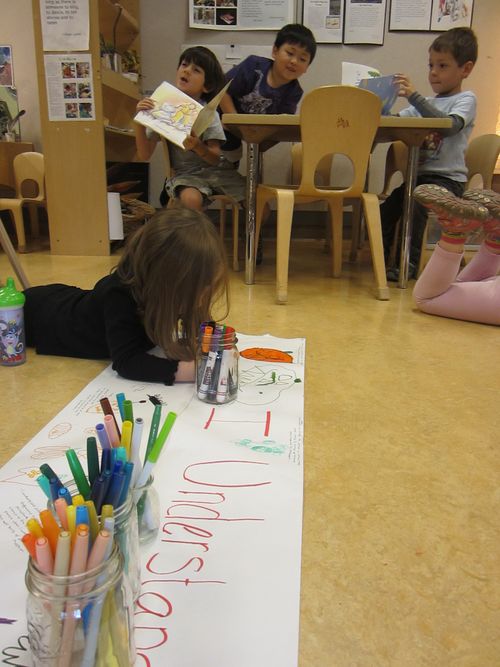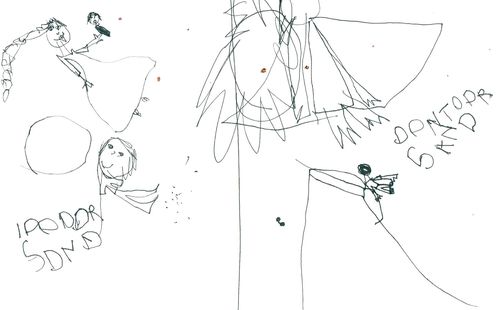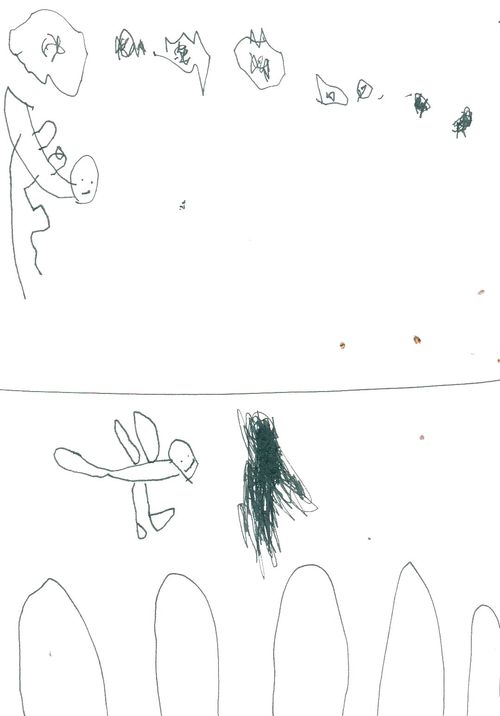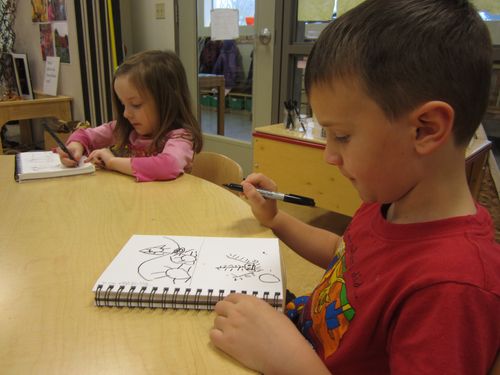Thinking about Our Thinking

Metacognition literally means "big thinking." You are thinking about thinking. During this process you are examining your brain's processing. Teachers work to guide students to become more strategic thinkers by helping them understand the way they are processing information. Through scaffolding and reciprocal teaching, students are able to practice the skills that lead to these overt acts becoming automatic.
— Fountas and Pinnell, 2000
During Reader's Workshop we are slowing down to think about our thinking, an important habit of mind known as metacognition. We are asking the children to notice what their brain is doing when we are reading and listening to stories. We have been practicing this idea listening to our "little voice" when reading many books over the past few weeks. We wonder together:
-What was happening in my brain when I listened to the story?
-What happened to my thinking when we read that part again?
-What am I wondering about?
One of the metacognitive strategies we have been practicing lately is what we call "I understand/I don't understand." During this particular strategy, we are paying attention to our "little voice" and focusing on the things we get, the things we understand and the things we have a lot of schema (or prior knowledge) around. We are also noticing when we don't understand something, find something confusing or wonder about.
Here are few examples of what the children were understanding and not understanding when reading The Stolen Sun by Amanda Hall.
I do understand the baby and the girl because I know mommies give birth to babies. I don't understand how Raven didn't burn when he got the sun." -H.F-A., age 5
"I don't understnad how Raven put the sun up in the sky. i don't know how it floats. I understand how he got the sun I learned from the other Raven story." -F. D-L., age 4
When we slow down and ask the children to pay attention to what they are thinking we are helping them to be aware of what good reader's do: make meaning of the stories they hear. We know that supporting children to build awareness of their own thinking is offering them opportunity to practice a powerful skill as they develop independence as readers. This skill will serve them well throughout their literary lives.
We encourage you to try this at home when reading with your Early Kindergartners. After a book, think out loud with your child. Discuss what you were thinking when reading the book, as well as what you understood and what you did not understand. Ask your child to share their thoughts and comprehension with you, too. Have fun as you get to share your thinking together!




